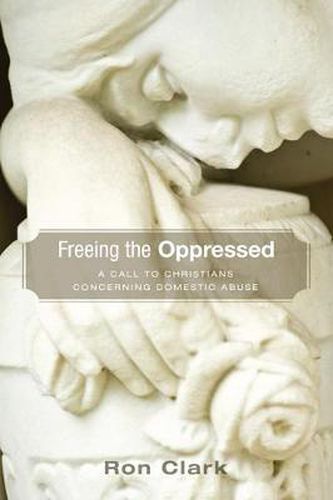Readings Newsletter
Become a Readings Member to make your shopping experience even easier.
Sign in or sign up for free!
You’re not far away from qualifying for FREE standard shipping within Australia
You’ve qualified for FREE standard shipping within Australia
The cart is loading…






This title is printed to order. This book may have been self-published. If so, we cannot guarantee the quality of the content. In the main most books will have gone through the editing process however some may not. We therefore suggest that you be aware of this before ordering this book. If in doubt check either the author or publisher’s details as we are unable to accept any returns unless they are faulty. Please contact us if you have any questions.
When Jesus spoke at his local synagogue he boldly proclaimed that he was the one sent to free those who were oppressed. He came to provide hope, peace, and safety to those suffering in the world. When he left this earth, his followers were left with the task of continuing this ministry. Statistics suggest that in America one in four women has experienced physical violence in an intimate relationship. Dating violence, intimate-partner violence, and child abuse rank as some of our nation’s largest problems. Men are also being abused by intimate partners, parents, or care providers at increasing rates. The statistic is even more alarming worldwide. Unfortunately, these statistics represent only reported incidents. The rates of verbal, emotional, and spiritual abuse are even higher. In addition, countless women are encouraged by clergy to return to their abusive spouses. The faith community, while called by God to free the oppressed, has been slow to respond to this sin against humanity. Few seminaries offer quality domestic-violence-prevention training for clergy. However, clergy still continue to be sought for help from the community and as advocates for victims of domestic violence. A partnership between the church and community (locally and abroad) is necessary if we wish to transform humans caught in this form of oppression. In Setting the Captives Free Ron Clark proposed a theology of addressing domestic violence and its application for clergy. Freeing the Oppressed is a book that seeks to condense Clark’s previous work into a readable form for those seeking spiritual answers concerning abuse and batterer intervention, and for helpers of those caught in the cycle of family violence. It is also designed as an outreach for those seeking help from the faith community.
$9.00 standard shipping within Australia
FREE standard shipping within Australia for orders over $100.00
Express & International shipping calculated at checkout
This title is printed to order. This book may have been self-published. If so, we cannot guarantee the quality of the content. In the main most books will have gone through the editing process however some may not. We therefore suggest that you be aware of this before ordering this book. If in doubt check either the author or publisher’s details as we are unable to accept any returns unless they are faulty. Please contact us if you have any questions.
When Jesus spoke at his local synagogue he boldly proclaimed that he was the one sent to free those who were oppressed. He came to provide hope, peace, and safety to those suffering in the world. When he left this earth, his followers were left with the task of continuing this ministry. Statistics suggest that in America one in four women has experienced physical violence in an intimate relationship. Dating violence, intimate-partner violence, and child abuse rank as some of our nation’s largest problems. Men are also being abused by intimate partners, parents, or care providers at increasing rates. The statistic is even more alarming worldwide. Unfortunately, these statistics represent only reported incidents. The rates of verbal, emotional, and spiritual abuse are even higher. In addition, countless women are encouraged by clergy to return to their abusive spouses. The faith community, while called by God to free the oppressed, has been slow to respond to this sin against humanity. Few seminaries offer quality domestic-violence-prevention training for clergy. However, clergy still continue to be sought for help from the community and as advocates for victims of domestic violence. A partnership between the church and community (locally and abroad) is necessary if we wish to transform humans caught in this form of oppression. In Setting the Captives Free Ron Clark proposed a theology of addressing domestic violence and its application for clergy. Freeing the Oppressed is a book that seeks to condense Clark’s previous work into a readable form for those seeking spiritual answers concerning abuse and batterer intervention, and for helpers of those caught in the cycle of family violence. It is also designed as an outreach for those seeking help from the faith community.